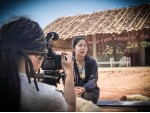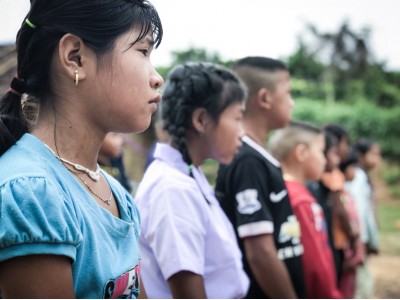Why are we building our own school for stateless children?
 The simple answer is that we think we can provide an education which fits with the lives and lifestyles of the students and their families. Let's explain the situation so that you can understand the background story.
The simple answer is that we think we can provide an education which fits with the lives and lifestyles of the students and their families. Let's explain the situation so that you can understand the background story.
 Across the country of Thailand, there are thousands of migrant workers employed in many industries - from working on fishing boats to factory work. In the northern province of Chiang Mai, in Fang district, the main employers are the orange orchard plantations. Workers are mainly from the Tai Yai (Shan) ethnic group, from Shan state in Myanmar. Some families are fleeing from fighting in that region, which has continued on and off for decades, but most are economic migrants looking for a better life.
Across the country of Thailand, there are thousands of migrant workers employed in many industries - from working on fishing boats to factory work. In the northern province of Chiang Mai, in Fang district, the main employers are the orange orchard plantations. Workers are mainly from the Tai Yai (Shan) ethnic group, from Shan state in Myanmar. Some families are fleeing from fighting in that region, which has continued on and off for decades, but most are economic migrants looking for a better life.
Parents and children who come across the border, legally or illegally, may have Myanmar citizenship. However, the children of these families who were born in Thailand are stateless - they cannot get Thai citizenship because their families have no documentation which would support their application, and until or unless Thai law changes they have no chance of getting citizenship in the future. These children also have no legal right to go to Myanmar as they are not citizens of that country either. Therefore, from the moment of birth, these children are destined for a life in limbo - stateless, limited rights, restricted opportunities, and at high risk of exploitation.
Notwithstanding the hardships faced by these families, most prefer to stay in Thailand rather than return to Myanmar because of the better standard of life (this is relative to their previous life in Myanmar, which was not only poor but also unsafe due to conflict).
From an education standpoint, the children are officially able to register in government schools but there are a number of obstacles which make this option difficult and often impossible.
